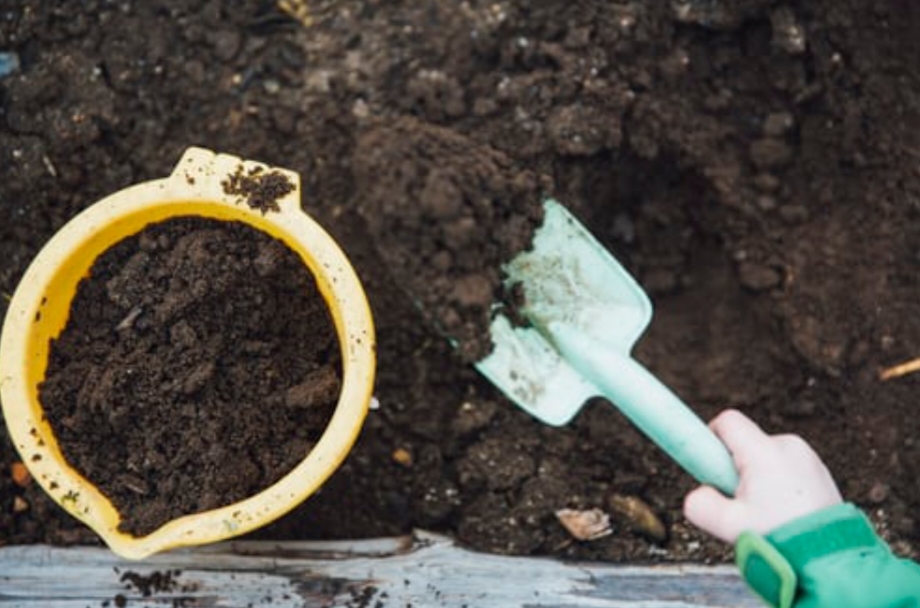THE BENEFITS OF HUMIC AND FULVIC ACIDS WHEN GROWING HERBS

Humic and fulvic acids are natural soil conditioners that can help your plants grow. They increase plant nutrient bioavailability, fight hemorrhagic fevers, and reduce the effect of free radicals in the body. Humic and fulvic acids are essential for the health of your herbs, and some of the benefits of both compounds are listed below.
Learn how to apply them to your plants from Gorilla Glue Regular to other unique herbs that can be grown at home and reap the benefits!
Table of Contents
Helps fight hemorrhagic fevers
Scientists are seeking natural remedies for hemorrhagic fevers to fight these re-emerging zoonotic diseases. This type of infection is highly contagious and is considered a high-risk bioterror weapon. The conventional therapy relies on symptomatic measures like antibiotics and antiviral drugs. Unfortunately, these solutions do not always work.
It is difficult to determine if herbs contain antiviral properties, as some are known to stimulate the immune system. Scientists have yet to pinpoint which parts of the immune system are targeted by the virus and which ones are responsible for recovery. In addition, there is a possibility that herbs with immune-stimulating properties will not stimulate the proper parts of the immune system. If that is the case, it is important to use the right herbs to treat hemorrhagic fevers.
Increases bioavailability of nutrients
Humic and fulvic acid are two beneficial substances found in soil, and they both increase the bioavailability of nutrients in plant tissues. Humic acid is similar to plant hormones, and increases plant activity and resilience. Fulvic acid also improves the utilization of chemical fertilizers and soil aggregate structure. It also increases the absorption of trace elements. However, it is not a substitute for the advice of a physician.
As the name suggests, humic and fulvic acids increase the bioavailability of nutrients in plants. Humic acid is a dark liquid found in the soil and can be applied directly to plants. It can also be diluted in water for use in other gardens. Because of its ionic nature, fulvic acid can help plants absorb nutrients. It can also aid in detoxifying the body by binding to pollutants and improving its bioavailability.
Reduces effect of free radicals in the body
Free radicals are molecules that attack important macromolecules in the body. In excess, these molecules can damage or disrupt cell function, causing many health issues. While free radicals can attack any kind of molecule, they are particularly problematic for proteins, nucleic acids, and lipids. Increasing your intake of plant-based foods, especially those high in antioxidants, can help counteract these effects.
Fresh, colorful fruits and vegetables are loaded with antioxidants. These compounds help fight inflammation and free radical stress. Recent research in the American Journal of Clinical Nutrition shows that higher intakes of fruits and vegetables reduce inflammation and reduce the effects of free radicals. High-carb diets, refined sugar, and processed food are all known to increase free radical activity in the body. Avoid eating too much of these foods and instead, choose those that are rich in antioxidants.
Detoxifies pollutants in the soil
While the term “humic acid” is used to describe a group of organic acids, the more accurate term is fulvic acid. Humus is the decomposed organic matter in soil that contributes to the stability, structure, and nutrient storage capacity of the soil. Various types of organic matter in soil become humus when the right conditions are met. During this process, the soil becomes more biologically active, enabling a wide range of soil organisms to thrive.
Moreover, both humic and fulvic acids detoxify the body from environmental pollution, and can detoxify the body. These acids also act as antioxidants, and can bind to pollutants in the body, such as pesticides and mercury. Although they are effective in detoxifying the body, there are still some uncertainties regarding the use of fulvic acid in the body. However, it is generally considered safe for most people. Studies of fulvic acid have not been conducted in special populations, including pregnant women, but seem to show that there are no serious side effects. Another benefit is that they are natural and are easily flushed from the body.
Read Also: The Complete Guide About Cineb – Watch and Download HD Movies
Enhances plant growth
Both humic and fulvic acids help plant growth in many ways. They improve soil health by increasing organic compounds and the number of beneficial bacteria. These two substances help your plants to better absorb essential nutrients and water. They also help plants to grow and thrive, as they help soils to hold water and nutrients. They are beneficial for all types of plants, especially those that need to soak up water. Soils that are rich in humic and fulvic acids are more fertile and have better water retention, as well.
Humic and fulvic acids can be separated, but they act in concert to improve plant growth. Both improve root mass, increasing plant availability of nutrients and passing them on to other plants. They can even help plant health by increasing the yield of plants and improving the plants’ response to feeding and drought. If you’re looking for a way to improve your plant’s growth on a budget, consider adding humic and fulvic acids to your growing medium.






